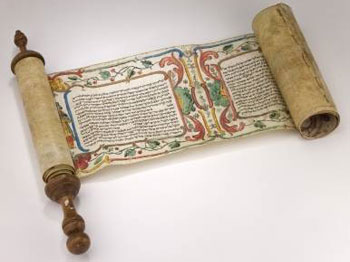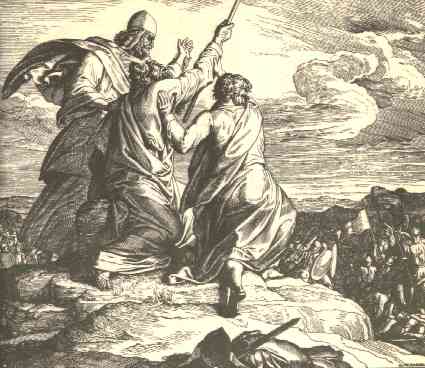Who was Haman, and why the obsession with blotting out his name?
The following are excerpts from a great article by my friend and colleague Rabbi Shraga Simmons. Enjoy!
Remember what Amalek did to you as you were leaving Egypt. He happened upon you, and struck the weakest people trailing behind, when you were exhausted. And he did not fear God. (Deut. 25:17-18)
God said to Moses: Write this remembrance in the book… that I will surely erase the memory of Amalek from under the heavens. (Exodus 17:14)
We are required to blot out the memory of Amalek, but what does that have to do with Haman, King Ahashverosh’s evil adviser?
To understand, we have to go back to the time of Jacob our forefather. Jacob had a twin brother Esav, who was a lifelong rival ― so much so that Esav sought to kill Jacob (see Genesis 27:41).
The Midrash says that when Esav was getting old, he called in his grandson Amalek and said: “I tried to kill Jacob but was unable. Now I am entrusting you and your descendents with the important mission of annihilating Jacob’s descendents ― the Jewish people. Carry out this deed for me. Be relentless and do not show mercy.”
True to his mission, Amalek has historically tried to destroy the Jews. For example, in Exodus 17:8, Amalek attacked the Jews out of pure hatred ― Amalek lived in a distant land and was under no imminent threat.
So what does Amalek have to do with Purim? The Scroll of Esther (3:1) identifies Haman as the descendent of Agag, King of Amalek. Haman’s desire to wipe out the Jewish people was an expression of his long-standing national tradition.
Random vs. Design
This conflict is much deeper than just a “sibling rivalry.” Philosophically, Amalek and the Jewish people stand at two opposite ends of the spectrum.
The Talmud explains: What is the meaning of the phrase “[Amalek] happened (“karcha“) upon you…” (Deut. 25:18)? The Hebrew word “karcha” literally means coincidence or happenstance. Amalek’s entire philosophy is that there is no design or providence in the world. Everything is haphazard, dictated by chance, luck and fate. That’s why the verse continues: “And [Amalek] did not fear God.”
On the other hand, Jacob and his descendents the Jews represent conscience and morality. The world has purpose and meaning and every individual is created in the image of God. From this foundation, the Jews introduced to the world concepts like monotheism, equality for all people, and universal education. This is the essence of what the prophet describes as being a “light unto the nations” (Isaiah 42:6).
While Jacob believes that God runs the world and there is an absolute standard of morality, Esav believes that life is random ― and morality is therefore subjective. Esav’s hatred for the message of morality actually forms the basis of all anti-Semitism. Just as the Jews stand for the principle of caring for the vulnerable and weak, Amalek is the opposite ― “attacking the weakest people trailing behind” (Deut. 25:18).
Continue reading the article at Aish.com , CLICK HERE…





0 Comments